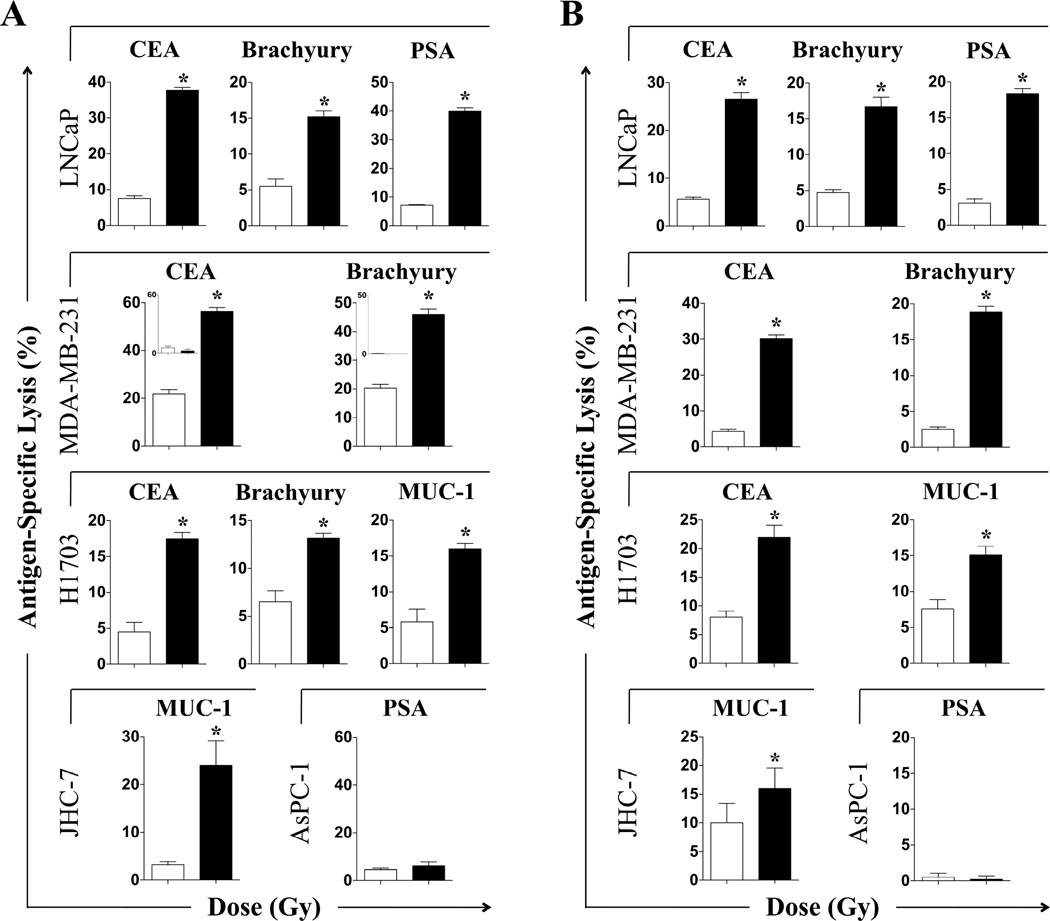Figure 2. Exposure of human carcinoma cells to sublethal doses of photon or proton radiation significantly increases sensitivity to antigen-specific CTL lysis.
Human prostate (LNCaP), breast (MDA-MB-231), lung (H1703), and chordoma (JHC7) tumor cells were mock-irradiated (0 Gy; open bars) or exposed to a single dose of 8 Gy (closed bars) (A) photon or (B) proton radiation. After 96 h, cells were used as targets in a CTL-lysis assay using CEA-, MUC-1-, brachyury-, or PSA-specific CD8+ T cells as effectors. To verify that effector T cells were HLA-restricted, CTLs were incubated with CEA+, HLA-A2/A24− AsPC-1 carcinoma cells (MDA-MB-231 inset, panel A). To verify antigen specificity, PSA-specific CTLs were incubated with PSA− AsPC-1 cells exposed to 0 or 8 Gy (panel A, lower right). Results are presented as mean ± S.E.M. from 3–6 replicate wells. This experiment was repeated 1–3 times with similar results. *, statistical significance relative to controls.

